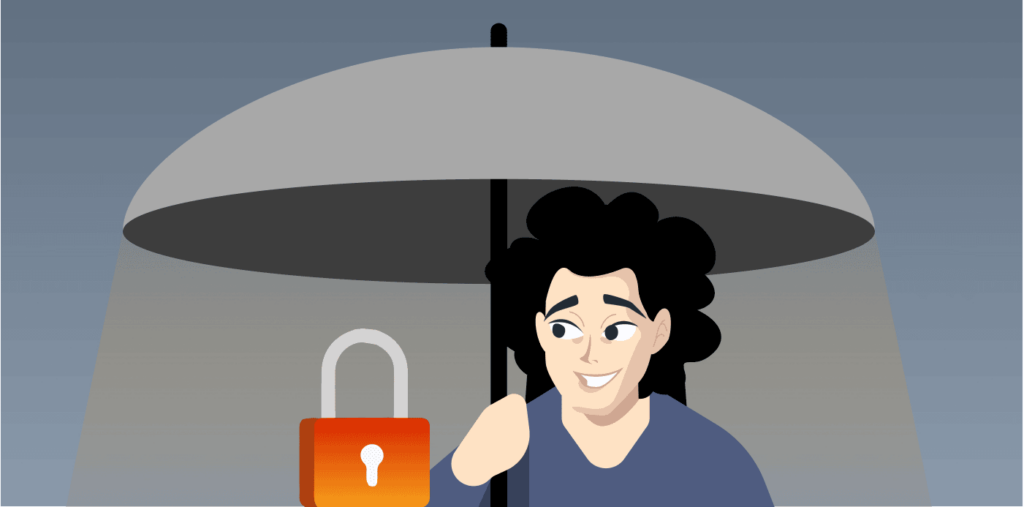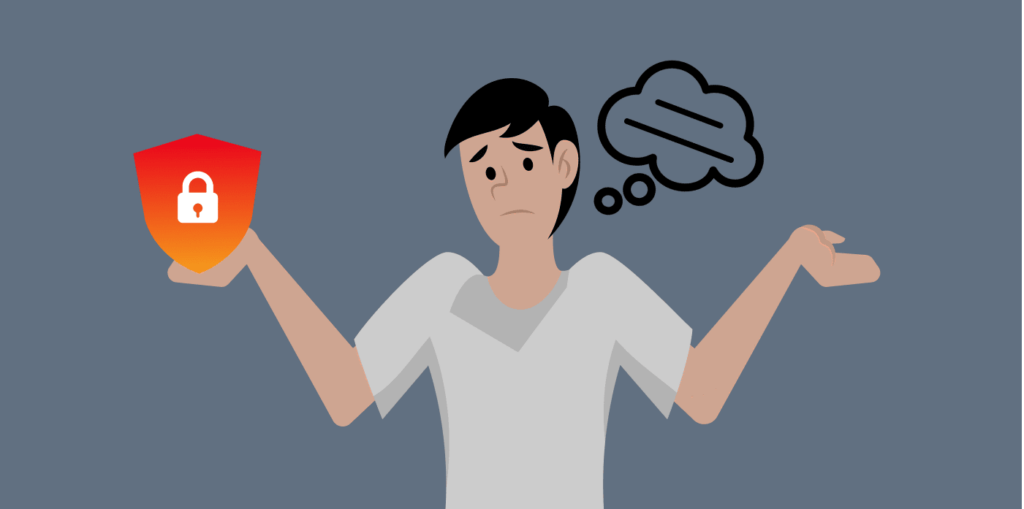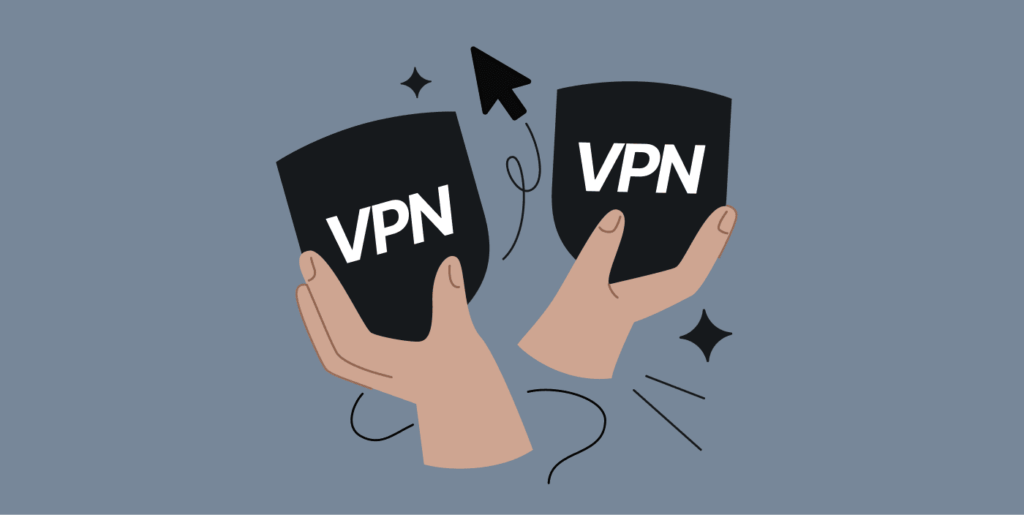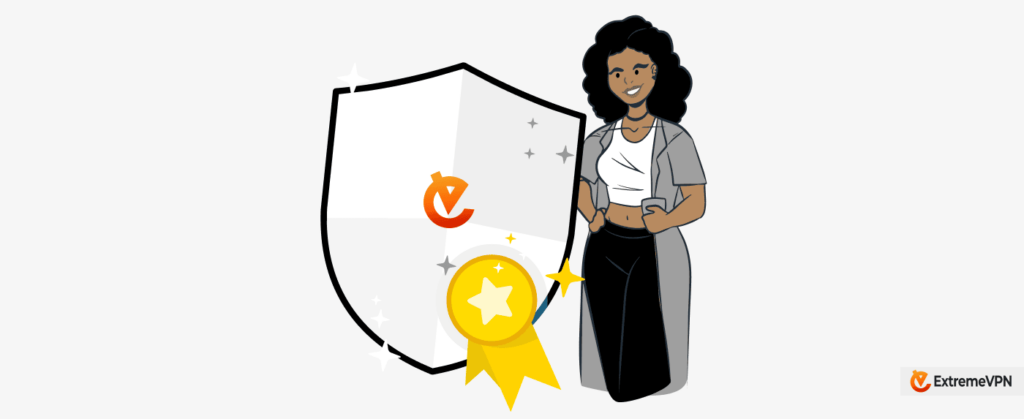Everyone enjoys the convenience of making a purchase online using their card details. You don’t have to leave your home, as the vendor can deliver your purchased item to your home with just a few taps on your device. However, anytime you place these orders, your data may be unsafe, which can threaten your internet life.
That is why prioritizing your online security should be your top goal during these transactions. In this post, we have highlighted some of the safest payment methods available today. You will also discover how to enhance security during these purchases using a VPN like ExtremeVPN.
The 11 Safest Online Payment Methods: Quick List
Want to have a quick look at the safest online payment platforms? Read below;
| Method | Perfect for | Security Level |
|---|---|---|
| 1. Debit Cards | Spending on a budget | Medium |
| 2. Credit Cards | Increasing your credit score | High |
| 3. Prepaid Cards | Budgeting expenses | Medium |
| 4. Third-Party Payment Gateways | Peer-to-peer transfer, a quick payment option in physical stores | High |
| 5. Digital Wallets | Online shopping | High |
| 6. Mobile Payment Apps | Country limitations, device compatibility issues | Medium |
| 7. Cryptocurrency | Investment, international transaction | Medium |
| 8. Virtual Payment Cards | One-time online purchases, fraud protection | Medium |
| 9. Gift Cards | Small purchases, gifting | Low |
| 10. Biometric Payments | Quick processing | High |
| 11. ACH Payments | Recurring bills, direct bank transfers | Medium |
What Does a Secure Payment Mean?

A secure payment guarantees the protection of your payment details and follows a transparent payment process. That means the security of your online payment depends on the payment method available on the site and how the site plans on using your bank details.
You can tell if your sensitive data will be safe during a payment process by checking the reliability of the e-commerce site. Confirm this through the official trust seals on the checkout page. These seals show that the site can protect your information during a purchase. It’s a way for you to know that you can put your trust in them regarding your online security.
Making a secure payment also relates to how reliable the site is. You can easily confirm this by looking at the website’s URL. The site’s URL must start with the HTTPS protocol, not HTTP. This security protocol ensures a secure connection between you and the site, protecting all activities done on that site, including purchases.
Detailed List: Secure Online Payment Methods
1. Debit Cards
| Pros | Cons |
|---|---|
| Overspending is impossible, as you can only spend what is in your bank account | Some debit cards usually come with spending limits |
| You can use it to withdraw cash at ATMs | It does not guarantee fraud protection |
| No annual fee attached | Your bank account is at risk as the card is directly linked to it |
Debit cards are payment cards issued by your financial institution that allow you to withdraw money directly from your bank account. It is a convenient way to carry cash around; this card only lets you spend what is already available in your bank account.
2. Credit Cards
| Pros | Cons |
|---|---|
| It provides strong protection against fraud and unauthorized use | You may incur debts if you don’t spend responsibly |
| It can help you build your credit score | Encourages overspending |
| Most online platforms accept payment with it | Some cards charge annual or hidden fees |
You can get a credit card from your financial institution, just like a debit card. The difference between these two cards is the money being spent. While a debit card only permits you to spend what you own, a credit card lets you spend what you owe. It enables you to borrow money from your financial institution (bank) with an agreement to pay it back with interest.
3. Prepaid Cards
| Pros | Cons |
|---|---|
| Separates your online transactions from your bank account | There is a limit to how much you can store on the card |
| It can help control your online purchases | There is a charge associated with any transaction made using the card |
| It minimizes financial risks | There could be limited acceptance in some places |
Prepaid cards aren’t directly linked to your bank account; however, you may need an activation ID or registeration to get them. To use a Prepaid card, you need to deposit money into it. You can only spend the amount that has been loaded onto it. This can help you manage your spending by performing any payment operation with your loaded balance.
Once the balance gets used up, you can quickly reload it from retail stores, mobile wallets, or with another card or bank transfer. Examples of these cards include Visa/Mastercard cards, Payoneer card, etc.
4. Third-Party Payment Gateways
| Pros | Cons |
|---|---|
| It prevents your card details from getting exposed | It charges extra fees for any transactions |
| Aids in international transactions | Not generally accepted in all countries |
Third-party payment gateways act like an agent that prevents you from exposing your credit/debit card details to the online vendor. When you open an account on this platform, you fill in your card details.
So, for every online transaction you make, money is sent directly from your bank account to the vendor’s account while hiding your card information. Examples of such platforms include PayPal, Stax, Stripe, and Square.
5. Digital Wallets
| Pros | Cons |
|---|---|
| Instead of the cardholder’s details, it uses a transaction ID | Its apps may not work well with your device |
| The payment process is fast and easy | Some online sites may not accept it |
| Perfect for all your online and physical purchases |
Digital wallets, also called e-wallets, let you store all your cards in the cloud, similar to how you use a real wallet. You can add your credit and debit cards to the app and fund your account to use for online shopping. It also lets you add other cards like public transportation passes and coupons. Classic examples are Google Pay and Apple Pay.
6. Mobile Payment Apps
| Pros | Cons |
|---|---|
| It’s easy to use these apps to pay with your phone | It might not work with your phone |
| They have good security, like two-factor authentication | Not widely accepted everywhere |
Mobile payment apps let you use your phone to pay for any item online. Many third-party payment platforms and digital wallets have handy apps to make quick payments. These apps have security features, like two-factor authentication, to protect your information. Venmo, Cash App, and Zelle are typical examples of this.
7. Cryptocurrency
| Pros | Cons |
|---|---|
| Perfect for international transfers | Crypto prices fluctuate a lot |
| You don’t need to provide your bank details | Many online vendors don’t take crypto |
| It can be a good investment |
Cryptocurrency provides a private space for you to perform your transactions online. It involves making crypto payments via a gateway app like BitPay and CoinGate. The online merchant should be willing to accept this method as payment before you can use it.
8. Virtual Payment Cards
| Pros | Cons |
|---|---|
| Limits exposure to fraud | Limited acceptance at most cases |
| Convenient for one-time or short-term use | Not a permanent solution |
| Offer flexibility | Not ideal for in-person shopping |
These forms of cards are temporary or disposable cards created for online purchases by banks or financial institutions. Though they have limitations. You can only use them for a specific number of transactions or for a limited time period, as they can get expire.
The biggest advantage of using these cards is that they keep your actual card information safe from online vendors. Even if someone hacks them, they cannot use them for transactions after their expiration. In most cases, users can set expiration dates themselves, which is another plus point.
However, they aren’t universally accepted and are a temporary form of payment, depending upon their nature.
9. Gift Cards
| Pros | Cons |
|---|---|
| No personal info required | Can’t be loaded again |
| Have a specific balance that limits spending | No purchase protection |
| Accepted in many retail stores | May expire quickly |
Gift cards can be another form of secure payment. However, they aren’t always easy to use, again due to limited acceptance. Users can get gift cards from several shops or third parties.
Most people think Gift cards and Prepaid cards are the same; however, they aren’t. You can’t reuse a git card. These are typically loaded with a specific balance, and once it ends, the card is of no use. Plus, unlike prepaid cards, you don’t need to provide any of your details to get these cards. This type of payment can be beneficial mainly for smaller purchases.
10. Biometric Payments
| Pros | Cons |
|---|---|
| Fast authentication | Requires compatible devices |
| Adds extra security layer | Not fully standalone |
Biometric Payments, or Bio-auth Payments, are a modern and convenient form of payment method. Here, you don’t need to enter your card details or any other information—users can carry out a transaction by paying through their physical traits (face ID, fingerprint, or eye scans).
They are secure, too, since you aren’t entering any data manually. If all of this sounds like sci-fi, you’re almost right, because biometric payments aren’t usually used by themselves. They’re mostly used to confirm your identity in payment systems like Apple Pay or Google Pay. Right now, there’s no standalone payment method available because the tech isn’t fully there yet.
11. ACH Payments
| Pros | Cons |
|---|---|
| Cost-friendly | Takes longer to process |
| Directly moves money between banks | Limited fraud protection |
ACH payments are direct transfers between bank accounts, often used for things like paying bills or getting your paycheck. You can also use them for one-time purchases (if the service supports bank transfers).
These payments are mostly safe and regulated, and usually cost less to process than credit cards.
However, when compared with credit cards, there are two main downsides: ACH payments take longer—usually a few days—and they don’t offer as much fraud protection, so it’s harder to get your money back if something goes wrong.
Are Online Transactions Risk-free?

Sadly, no. You may unintentionally expose yourself to malicious internet users when you enter your details on the payment platform. Cases of card fraud, identity theft, and phishing attacks have been on the rise, threatening online users’ safety during these transactions.
Research reveals that the banking body of UK Finance had recorded up to 2.6 million remote fraud cases in 2024. With all these risks, prioritizing our security should always come first during these online transactions.
Ten Effective Tips to Ensure Your Online Operations are Safe

Here are ten practical tips that can guarantee a safe and secure transaction as an online merchant:
1. Choose a Safe Payment Platform
The payment platform you pick is in charge of managing your website and all sales operations. This means you are not solely responsible for managing the possible online threats; your chosen platform has a part to play. Ensure your platform offers a secure and reliable service so you won’t worry about your business data safety.
2. Obtain Cyber Insurance
As your business grows, more online transactions will happen, increasing the customer data you must safeguard. As you protect this data, you must also protect yourself from any financial loss that possible online threats can cause. Good cyber insurance can help protect your business from expenses caused by a data breach or cyber attack.
3. Store Sensitive Data with a Third Party
Storing your customers’ sensitive data, like their credit card details, on your site increases the risk of their digital lives getting compromised. Instead, a third-party payment platform can help mitigate these risks. This third-party platform will store your customers’ details and ensure that all payment operations occur without issues.
4. Use Multi-factor Authentication
Adding multi-factor authentication to your site provides extra security to your customers. Just like we see on our social media apps, this feature can help prevent any third party from accessing critical financial data without authorization.
5. Don’t Store Buyers’ Information
It’s best to avoid saving customers’ transaction information on your system to prevent them from being the target of cybercriminals. There will be little to no information about your customers online, so you can run your online operations worry-free. Consider using a third-party platform that assures optimum data protection to store this data.
6. Have a Verification System
Ensure you monitor every purchase that a user makes on your site from your end. By implementing an identity verification system, you can quickly tell whether a user is purchasing the item or an unauthorized person. Users will need to use a form of identification like a passport to make sure they are the ones making the transaction.
7. Don’t Take Security for Granted
One mistake you can make as an online vendor is to underrate the importance of security in your business. Adding SSL to your site can help secure and protect your customers’ personal information. It will prevent any malicious internet user from seeing or stealing the data available on your site.
8. Get a Hosting Provider that Implements Security Measures
You can never go wrong with having multiple security measures to protect your digital operations. Apart from using SSL, it’s also advisable to get a trustworthy hosting service like Digital Ocean and Cloudways that can save you from DDOS and malware attacks and detect vulnerabilities in your site.
9. Comply with PCI Security Standards
Cyber threats put your business data at risk. To avoid them, ensure you comply with security standards when handling customers’ data. For example, PCI data security standards enable you to protect the card information your customers store on your site during payments.
10. Let Your Users Know About Security and VPNs
Letting only the online vendor take care of the transaction security is one-sided. Customers also have a part to play to ensure their data doesn’t face cyber threats. That’s why encouraging your users to use a reliable VPN service, like ExtremeVPN, can help ensure their safety online.
How Can You Choose a Secure Payment Method

Below are some points you should keep in mind when confirming the reliability of a payment platform:
- User Experience: You should get an easy, positive experience when paying through the platform. Also, if it offers real-time monitoring, that is a bonus, as you can see every payment operation you perform.
- Security: When making a payment online, you must be assured that you are guarded against security risks such as fraud and transaction failures. Your chosen platform should be able to guarantee this protection as well as comply with PCI security standards.
- Transaction costs: Most payment platforms attach extra charges for every payment you make. Consider one that assures you of a low-cost transaction fee for a high-value transaction.
- Assistance: There should be a go-to place on the platform if you have any problems. You should ensure your payment platform offers round-the-clock live online support at any moment.
The Three Foundations of a Safe Online Payment Process
If you’re an e-commerce website owner, three essential elements can help you create a secure customer checkout process. They include:
1. Security
Cybercriminals are always searching for an opening in your system that lets them steal your users’ data. Hence, your payment platform must be well-secured to protect your business and customers. A strong encryption and authentication protocol on your checkout platform can help prevent unauthorized access to sensitive data.
2. Fraud Management
Fraud is a significant element that all businesses should tackle. Incorporating a reliable fraud management system will require you to adjust the payment method you offer and let you verify a buyer’s identity before any transaction. These adjustments will protect your customers’ data and build your business’s reputation.
3. Compliance
Depending on your country, there are specific security standards regarding users’ data and privacy that you should adhere to. An example of a globally accepted standard is the PCI DSS compliance. It sets the minimum standard required to protect a cardholder’s information from data theft.
Enhance Your Online Transactions’ Security with a VPN

Making any payment online without the necessary protection is similar to setting the playground for hackers to come. That is why a VPN always comes in handy. Connecting to a VPN grants you the following benefits:
- Invisibility: One thing a reliable VPN never fails to do is to hide your online identity. It does this by hiding your actual IP address and giving you a new one, which, in turn, changes your online location.
- Data protection: A VPN converts your information into unreadable data for every online activity through encryption. Anyone trying to access any of your data won’t even be able to understand what they are seeing, making the data useless to them.
- Privacy: By staying anonymous and encrypting your online traffic, a VPN grants you a bulletproof shield that prevents any outsider from knowing what you’re doing online.
How to Choose the Perfect VPN for Your Transactions Online

As you choose a safe payment method to use online, consider choosing a reliable VPN service to use alongside it. So, if you want to select a VPN provider to use, there are essential features it must have:
- Global server coverage: A VPN with high number of servers that can guarantee a fast network speed and more coverage.
- Industry-leading encryption: You should use a VPN with the standard AES-256-bit, which can turn your data into a secret code.
- Robust security features: Certain features like IPv6 leak protection, DNS leak protection, kill switch, and split tunneling are security features that typically indicate that a VPN can keep you safe online.
- Strict no-log policy: Whatever activity you perform online should be known to you alone. That is why a reliable VPN service should not store your online data.
- 24/7 online support: A trusted VPN service should always be available to answer any question you have promptly.
Fortunately, you don’t have to search the web for a VPN that fits this criteria, as ExtremeVPN offers all of these features. ExtremeVPN grants you unmatched protection against online predators.
Also, the steps to setting it up on your device are straightforward:
- Subscribe to your preferred plan and create your ExtremeVPN account.
- Download the ExtremeVPN app that is perfect for your device. We have apps that work on iOS, macOS, Android, and Windows.
- Launch the app and connect to your preferred server location.
ExtremeVPN promises you the best protection services for all your transactions online.
